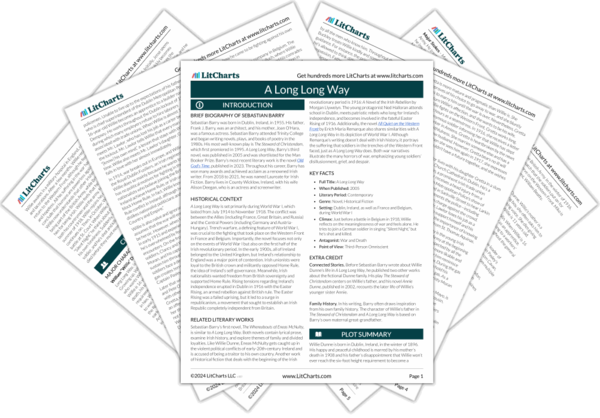Jesse, who is more informed and politically conscious than Willie, teaches Willie about the tensions between Irish unionists, nationalists, and republicans regarding Ireland’s independence from British rule. Willie feels like he doesn’t have a place in these convoluted political conflicts because he’s been ignorant about them all his life. Willie doesn’t have his own stance about Home Rule, nor does he know how to form his own opinion about the rebellion.
